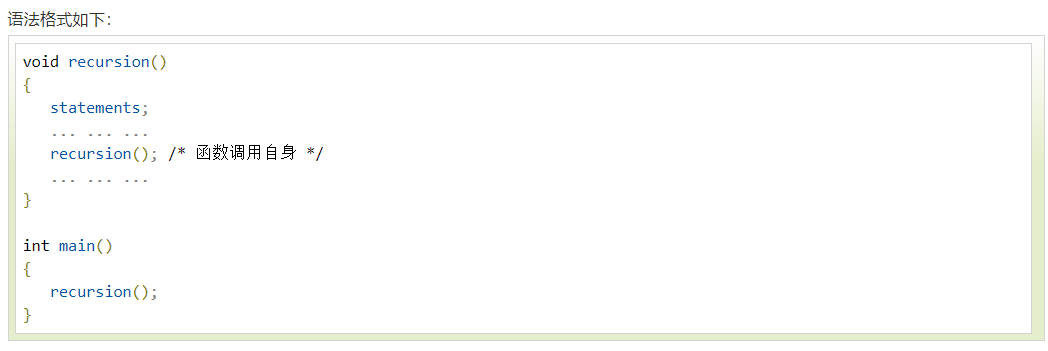C 递归
递归指的是在函数的定义中使用函数自身的方法。
举个例子:
从前有座山,山里有座庙,庙里有个老和尚,正在给小和尚讲故事呢!故事是什么呢?"从前有座山,山里有座庙,庙里有个老和尚,正在给小和尚讲故事呢!故事是什么呢?'从前有座山,山里有座庙,庙里有个老和尚,正在给小和尚讲故事呢!故事是什么呢?……'"

例子:
1 //递归 -函数用自己的过程 函数掉自己 (大部分递归可以用 循环来表示) 2 3 //#include <stdio.h> 4 //#include <stdlib.h> 5 6 // 1. 7 /* 8 int num = 0; 9 //函数定义 10 11 void test() 12 { 13 printf("%d\n",num++); 14 test(); //自己调用自己 - 递归 15 } 16 17 18 int main() 19 { 20 21 test(); 22 return 0; 23 //循环退出条件 24 } 25 */ 26 27 //2.- 5的阶乘 5*4*3*2*1 28 /* 29 int factorial (int num) 30 { 31 if(num == 1) //退出条件 32 return 1; 33 else 34 { 35 num = num *factorial(num -1); 36 return num ; 37 } 38 } 39 40 int main() 41 { 42 int result = factorial(5); 43 44 printf("%d\n",result); 45 46 return 0; 47 } 48 49 50 */
本文来自博客园,作者:Bytezero!,转载请注明原文链接:https://www.cnblogs.com/Bytezero/p/15072156.html



 浙公网安备 33010602011771号
浙公网安备 33010602011771号